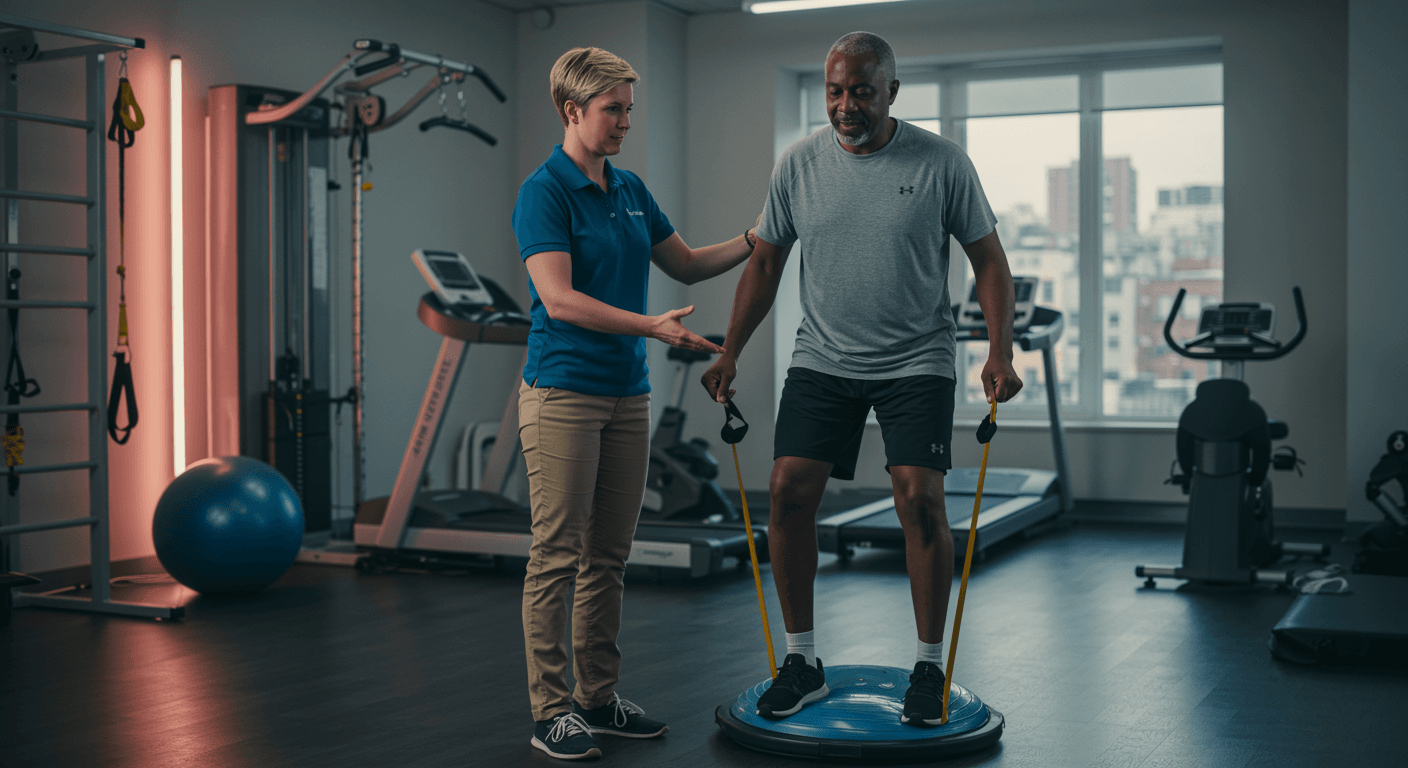Physical Therapy and Rehabilitation

Physical therapy (PT) and rehabilitation focus on restoring movement, strength, and function in individuals recovering from injuries, surgeries, or medical conditions that affect mobility. It is a non-invasive, evidence-based approach that helps patients regain independence, manage pain, and improve their overall quality of life. Physical therapy is widely used for conditions such as sports injuries, neurological disorders, post-surgical recovery, and musculoskeletal conditions.
Physical therapy and rehabilitation provide a wide range of physical, functional, and psychological benefits, including:
- Pain Relief: Reduces pain through targeted exercises, manual therapy, and modalities such as ultrasound and electrical stimulation.
- Improved Mobility and Flexibility: Helps individuals regain range of motion after injury, stroke, or surgery.
- Strength and Balance Training: Prevents falls and enhances muscle function, especially in elderly patients or those with neurological conditions.
- Faster Recovery: Promotes healing and tissue regeneration, reducing downtime after injury or surgery.
Prevention of Future Injuries: Strengthens weak areas, corrects posture, and improves biomechanics to reduce the risk of recurrence. - Enhanced Independence and Quality of Life: Supports daily activities and self-care, allowing individuals to return to work, sports, and normal routines.
Types of Physical Therapy and Rehabilitation
Orthopedic Physical Therapy
- Treats musculoskeletal injuries such as fractures, sprains, tendonitis, and post-surgical conditions.
- Focuses on strengthening, flexibility exercises, and joint mobilization.
Sports Rehabilitation
- Helps athletes recover from injuries like ACL tears, rotator cuff injuries, and muscle strains.
- Emphasizes sports-specific exercises, strength training, and injury prevention.
Pediatric Physical Therapy
- Aims to improve motor skills, coordination, and muscle development in children with conditions like cerebral palsy or developmental delays.
Geriatric Physical Therapy
- Focuses on age-related conditions such as arthritis, osteoporosis, and balance disorders.
- Helps improve mobility, strength, and fall prevention for older adults.
Cardiopulmonary Rehabilitation
- Designed for patients recovering from heart disease, lung conditions, or post-surgical cardiac procedures.
- Includes aerobic conditioning, breathing exercises, and endurance training.
